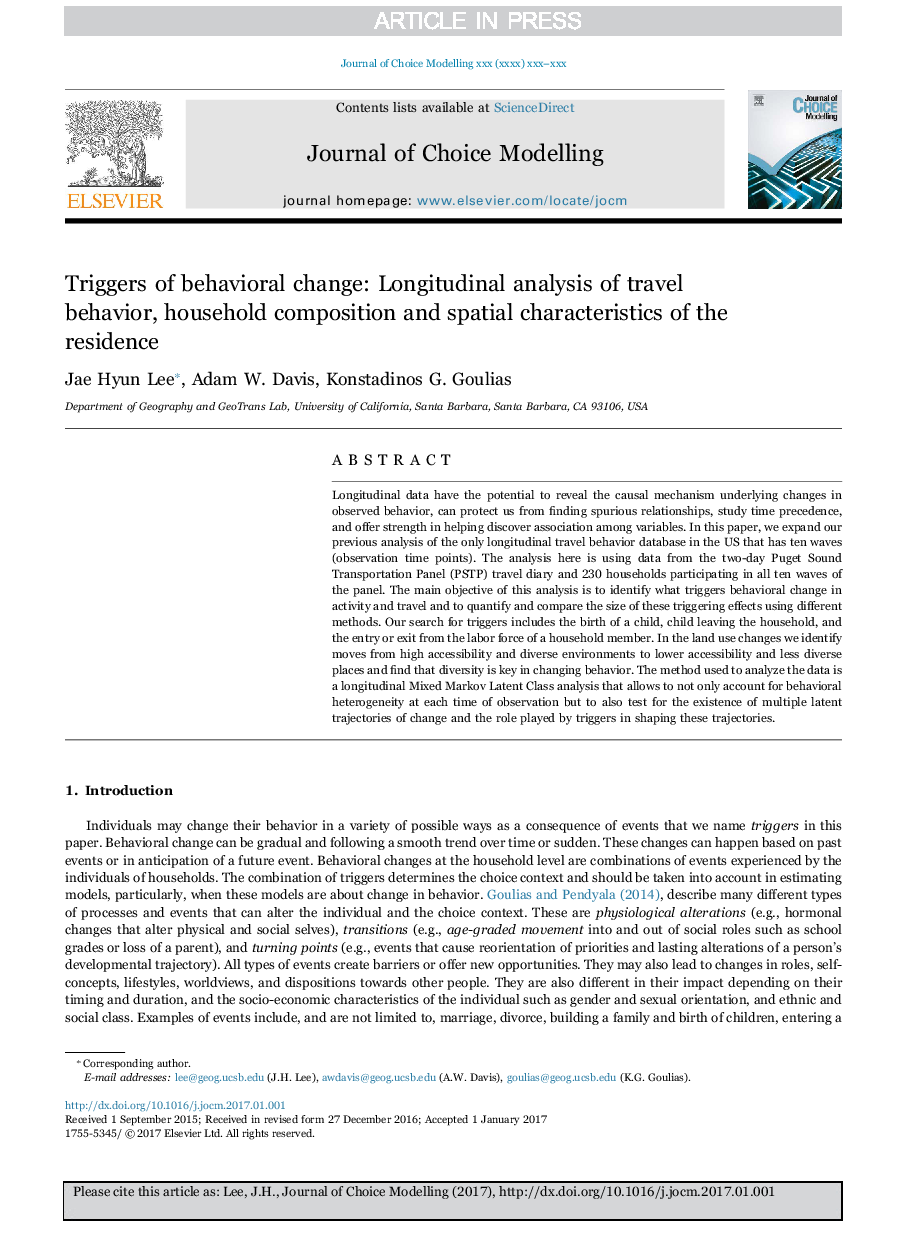ترجمه فارسی عنوان مقاله
عوامل موثر در تغییر رفتار: تجزیه و تحلیل طولی رفتار رفت و آمد، ترکیب خانوار و ویژگی های فضایی محل اقامت
عنوان انگلیسی
Triggers of behavioral change: Longitudinal analysis of travel behavior, household composition and spatial characteristics of the residence
| کد مقاله | سال انتشار | تعداد صفحات مقاله انگلیسی |
|---|---|---|
| 113616 | 2017 | 18 صفحه PDF |
منبع

Publisher : Elsevier - Science Direct (الزویر - ساینس دایرکت)
Journal : Journal of Choice Modelling, Volume 24, September 2017, Pages 4-21

